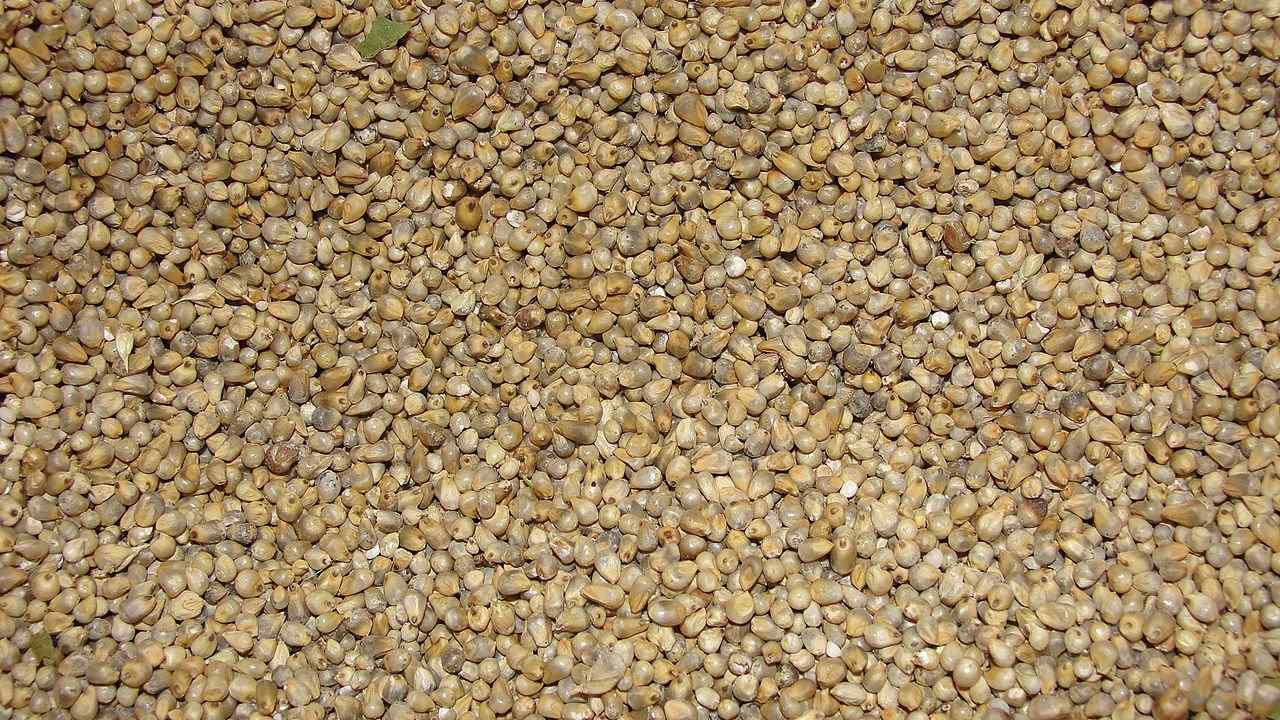Pearl Millet or Bajra is a popular cereal in Indian and African regions.
Its botanical name is Pennisetum Glaucum. And, it is originated from West Africa (1).
Pearl millet is famous for its high nutritional value and the health benefits it offers. In India, It is mainly used in Rajasthan and Uttar Pradesh.
Pearl millet could be an excellent substitute for wheat and rice.
In India, it’s mostly grounded into flour and used for making chapati, dosa, etc. It is also used to feed animals in some places.
Nutrition Facts:
Pearl Millet is rich in protein, dietary fiber, and iron. It provides 60% of the daily value of iron per 100 grams, which may help prevent anemia. It also has a considerable amount of calcium, which may improve your bone health.
The negligible amount of B vitamins in pearl millets may improve brain function.
100 grams of pearl millet provides the following nutrients (2).
- Calories: 363 kcal
- Fat: 4.8 grams
- Dietary Fiber: 2.3 grams
- Total Carbohydrate: 67 grams
- Protein: 11.8 grams
- Iron: 11 mg
- Vitamin B1: 0.38 mg
- Calcium: 42 mg
- Vitamin B2: 0.21 mg
- Vitamin B3: 2.8 mg

Here are 6 amazing health benefits of Pearl Millet.
Health Benefits Of Pearl Millet:
1. Good For Heart
Pearl millet has a reasonable amount of magnesium, which reduces blood pressure (3).
It is also rich in antioxidants and phenolic acids. These components help prevent many diseases, such as heart diseases, high blood pressure, and cancer (4).
Additionally, studies on broiler chicken indicate that pearl millet helps reduce both LDL and total cholesterol levels (5).
2. Good For Weight Loss
Pearl millet is a rich source of insoluble fiber. It promotes weight loss as fiber helps in burning extra fat (6).
Pearl millet also contains complex carbohydrates that take time to digest and prevents food craving for longer.
Pearl millet is a good source of energy and protein. Hence, it is an excellent food for those who want to lose weight.
3. Good For Diabetes
Pearl millet is low on the glycemic index (7). Hence, it will not raise your blood sugar levels instantly.
Also, studies on rats reveal that pearl millet helps reduce blood sugar levels (8).
Hence, pearl millet is an ideal choice for those who have diabetes.
4. Prevents Cancer
All millets, including pearl millet, have a decent amount of phytochemicals such as polyphenols, which help prevent cancer (9).
Additionally, research shows that consumption of whole grains like pearl millet is associated with a reduced risk of breast cancer (10).
5. Improves Digestion
Pearl Millet is a rich source of fiber that helps improve your digestion.
It keeps the bowel movement good and prevents constipation.
6. Gluten-Free
Pearl millet is a gluten-free food. Therefore, it is ideal for people who have celiac disease.
Side Effects:
Sometimes pearl millet is affected by a fungal disease called ergot.
These ergoty pearl millets have alkaloids that are harmful to the body (11).
Consuming them may cause nausea, vomiting, and giddiness (12).
Therefore, if you develop any such symptoms after consuming pearl millet, talk to your doctor.
Conclusion:
Pearl millet is an excellent, nutritious cereal. It boasts a lot of medicinal uses.
We can easily add pearl millet to chapatis and bread. It is healthier than whole wheat flour.
Hence, we can consume pearl millet on a regular basis to stay fit and healthy.